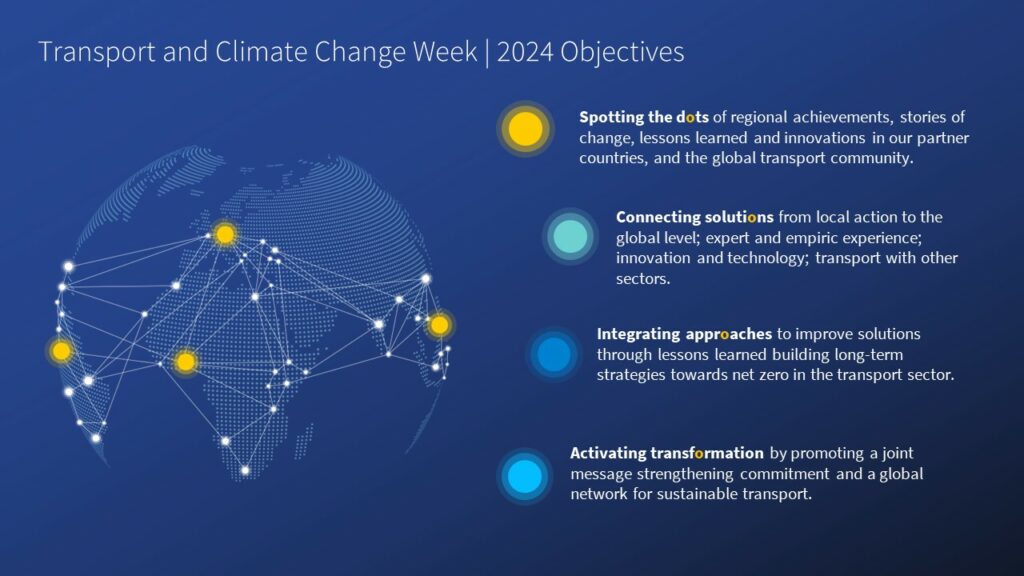
The seventh edition of Transport and Climate Change Week is to be hosted fully in a virtual format, enabling the participation of a broader audience. Register now to join the event!
By connecting the dots, we are creating an environment for integrated solutions, ensuring the global perspective and fostering global transport action.
As in the past, during the week 4-8 November, the event will bring together practitioners from countries; will provide live virtual space for the global transport community to enable regional and global exchanges and it will promote GIZ’s projects practice exchanges and host partners side-events. Based on peer learning and the sharing of country experiences, as well as bringing expert input to integrate and promote a holistic approach, the conference aims to call for action by connecting experts, solutions, and ideas.
To maintain the face-to-face nature of Transport Week, this year ambassadors from the coordinating team visited Latin America, Africa and Asia in May and June to learn first-hand about experiences and projects in our partner countries. The narrative and agenda were built around the issues, ideas and challenges that each region faces in managing the transition to net-zero sustainable transport. By continuing the discussion we started six years ago around the question:
How to effectively tackle climate change in the transport sector?
Transport and Climate Change Week is a time when we all come together to bring experiences, lessons, solutions and open questions to the global table. This year will be dedicated to highlighting achievements, connecting solutions, integrating approaches and calling for action, with activities stemming from these objectives. This year’s edition seeks to connect the identified regional dots:
At Conversápolis in Colombia, the challenges of public and informal transport have led to a cat-and-mouse game of regulations and loopholes between authorities and paratransit operators, as paratransit is a reality and generally arises from the need to meet transport demand where formal transport does not reach the population. At the same time, employment opportunities are often scarce and providing popular transport services generates income for communities.
The Regional Exchange on Minibus Electrification in Kigali highlighted the importance of embedding and contextualising electrification and decarbonisation efforts within broader and comprehensive paratransit reform. This is particularly important as paratransit is the main form of motorised and public transport across Africa.
Keeping focused on the bigger challenge, we continue calling for strong NDC commitment from countries. The NDC-TIA conference in Bangkok left a clear message, the contribution of transport to climate action requires a multi-factor approach, hand in hand with access and social inclusion, highlighting that how transport contributes to the climate commitment is a key element promoting the transition towards zero-emission.
The Western-Balkans is advancing on influence to steer a sustainable urban mobility. Innovation and awareness raising is a key issue to steer change. We will be delving further on all regional experiences during our online conference this year.
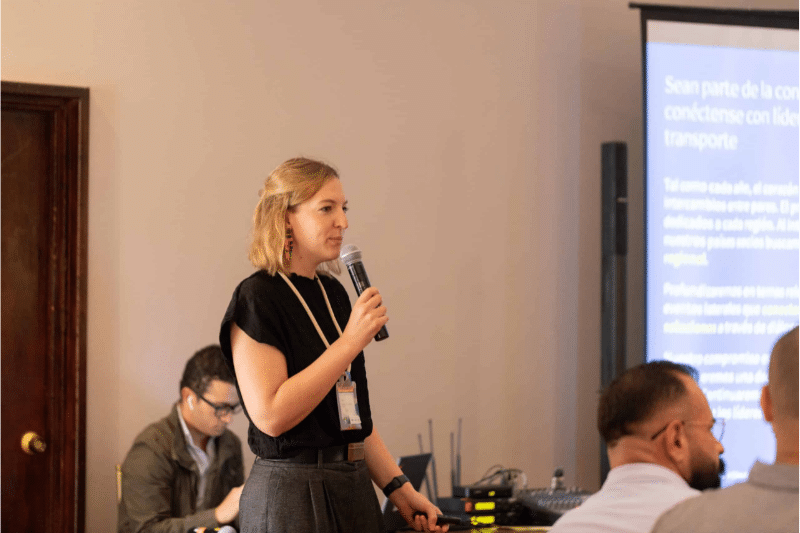

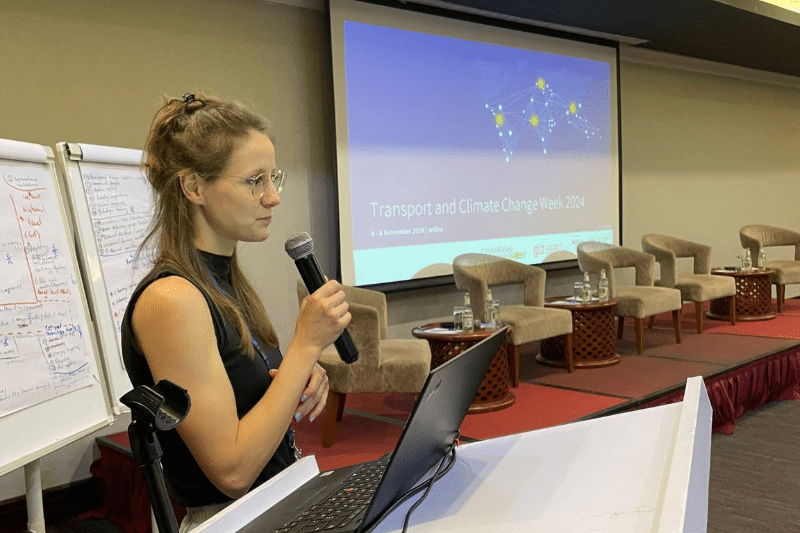
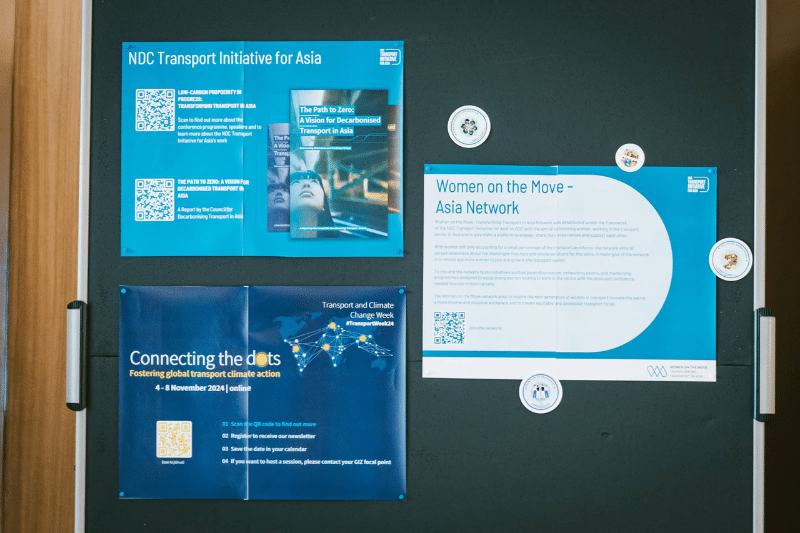
On Monday we will start with an official welcome from authorities followed by a keynote. The day will feature an open discussion on political leadership and adaptive change.
Tuesday will focus on multisectoral collaboration and gender transformative systems to achieving affordable and sustainable urban mobility. The second day will be dedicated to learning from the regional experiences in the Western-Balkans.
Wednesday will spotlight Africa’s regional perspective, showcasing proven solutions and encouraging us not to reinvent the wheel. The day will include discussions on standards in transition, truck decarbonisation, and vehicle efficiency analysis. We will also engage with the broader ecosystem on fuel roadmaps, closing with insights from Latin America’s regional perspective.
Thursday is Conference Day, emphasizing climate commitment. The regional Asia perspective will guide discussions on achieving NDC goals and building capacity to integrate mobility adaptation into planning while developing more ambitious NDCs. The highlight of the week will be the Conference session, where the Transport Week community will draft a collective message for future transport climate action to be delivered at COP29 in Baku.
The week will finish discussing tools to track change and the role of think-tanks on Friday. As farewell of the week, we will share the concept for Transport and Climate Change Week 2025, the 8th edition to be hosted in person in Berlin.
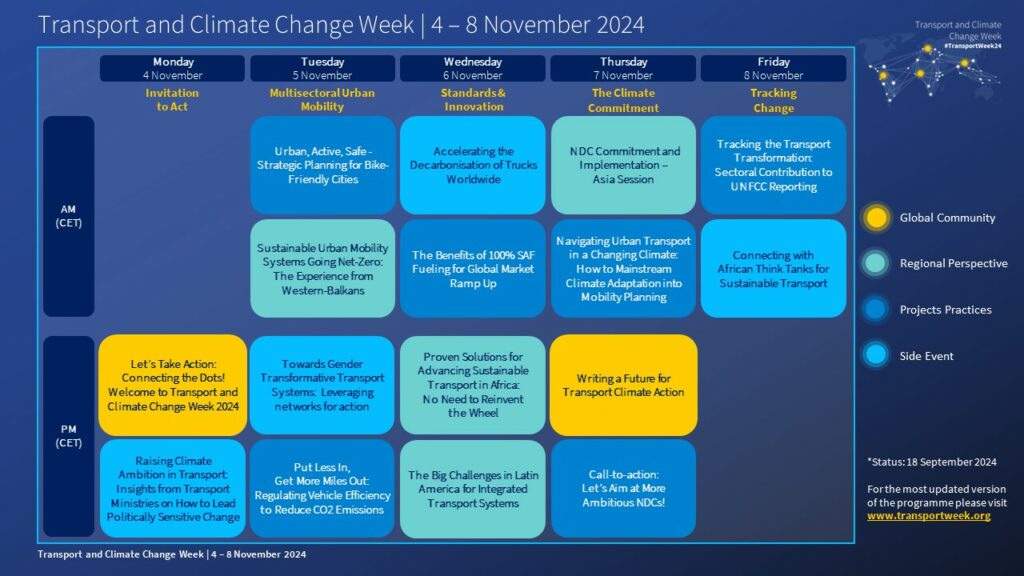
Do not miss the opportunity to be part of #TransportWeek24 by registering here! You can also subscribe to our newsletter to stay up to date.
The Mobilize Net Zero project team is organising the annual Transport and Climate Change Week, alternating between a virtual and face-to-face format. The project is implemented by the Deutsche Gesellschaft für Internationale Zusammenarbeit (GIZ) GmbH and is funded through the International Climate Initiative (IKI) of the German Federal Ministry for Economic Affairs and Climate Action (BMWK).